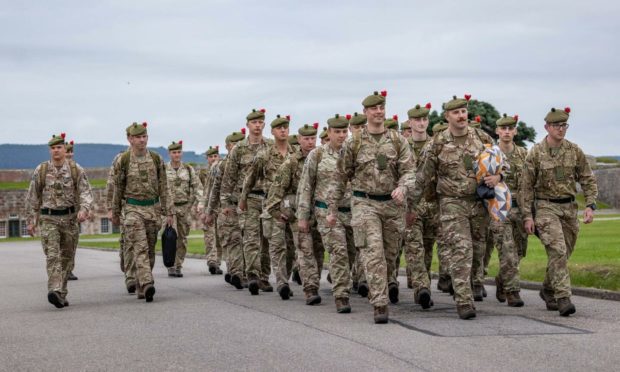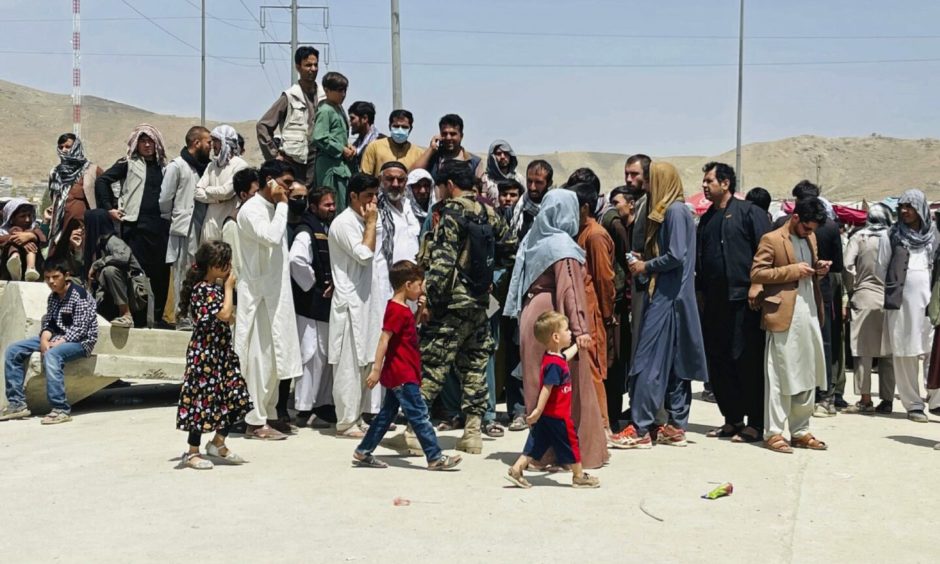Someone was waving a piece of paper at me through the window of an army helicopter which was about to whisk me into the air.
The officer was apologetic, but obviously relieved he had caught me in time.
“I am afraid you will have to sign this before you go,” he blurted out between catching his breath after running from his office deep inside the barracks.
As the pilot was straining on the leash, I just signed it and shouted back: “What’s that about?”
Just before his words were swallowed by engine noise and downdraft, I heard him yell: “It means you can’t blame us if you get killed.”
Was that army black humour or was he deadly serious? I never checked.
On the frontlines
It was the height of the Troubles in Northern Ireland and I was embedded with our local regiment for a week in Londonderry as a young reporter.
I think they took the word “embedded” a little too literally.
They kitted me out in combat fatigues like a real soldier; it made me look like a prime IRA target. Today’s media have their own look with distinctive helmets and “Press” emblazoned on them.
But I just looked like Private Pike from Dad’s Army.
It was one of two occasions in my career when I was catapulted into frontline operations – the other was when I was aboard nuclear destroyer HMS York in the Gulf.
The reason I am reminiscing about these things is because of the heartbreaking scenes at Kabul airport and my undying admiration and respect for our fighting men and women, which took root in my brief and limited first-hand experiences.
As an army major said in an interview at the airport, they are ready for any emergency – to fight and kill in combat, or save lives in a humanitarian disaster.
What would we do in their shoes?
Most of us would run for cover in that dystopian hell in Kabul; they run towards it prepared by spit and polish and discipline of military training often derided by some.
But if the Taliban landed in northern Scotland (nothing would surprise me after the indecent haste of the West’s retreat from Afghanistan) and started enslaving and raping our sisters and daughters we would be screaming at our soldiers: “Kill them.”
One woman soldier caught my eye amid the terror and misery of Kabul: fear and stress was imprinted on her face, but her training kicked in.
Her loved ones would have been terrified and proud in equal measure.
The scale of human suffering naturally takes centre stage in this catastrophic tragedy, but our debt to the common soldier is immense, not forgetting those who spilled blood and were broken forever – or never came back alive.
I had a sense of dread patrolling around in uniform with combat soldiers fighting the IRA in Northern Ireland. I was more of a hindrance than a help.
For some inexplicable reason I strolled past our foot patrol as they crouched against a garden wall at a junction, but as I stepped out casually into the road I was yanked back neck-first by a young lieutenant who was in command.
Haven’t you seen Band of Brothers? You don’t just step straight across a junction – easy meat for an ambush, you see.
I flew home in awe of these ordinary men and women doing extraordinary things to protect us.
The cost of heroism
Napoleon spoke of soldiers being the “true nobility” of a country, but too often in history they were let down by a generally incompetent political elite – as we now see yet again in Afghanistan after the US breakneck capitulation.
Churchill was a hero of the war against Nazism, but was always disliked by my grandfather; the roots went back a generation to when Jack Knight volunteered to fight in WWI in 1914 – at the tender age of 16, which was quite common then.
He landed in the bloodbath of Gallipoli the following summer and somehow survived, but with bayonet and shrapnel wounds to his legs. He was awarded the 1914-15 star, which was prompted by calls for recognition of those who fought at Gallipoli.
They were nearly all volunteers as conscription did not come in until 1916. Churchill took the blame for relentlessly driving a campaign which was one of Britain’s worst military disasters,
My grandfather’s mental scars only became visible to me just before his death 75 years later when, tormented by nightmares, he gripped my arms and said: “I still see their faces.”
How many returning British heroes from Kabul airport will say the same in later life?
David Knight is the long-serving former deputy editor of The Press and Journal


